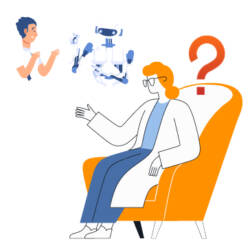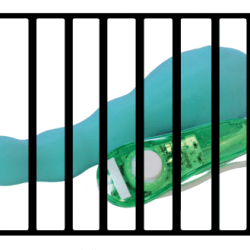STD Rates Quietly Spiking as Fewer People Are Tested, Warn Health Officials
Sexual health services are suffering during COVID-19 crisis.

As critical health resources are shuffled away from sexual health to deal with the COVID-19 outbreak, health officials are raising the alarm about skyrocketing STD rates.
According to a recent survey by the National Coalition of STD Directors in the United States, two-thirds of clinics report decreased health screenings and testing due to the pandemic.
A whopping 83% of STD programs in the country say they are not making their regular field visits. More specifically, 62% report they are unable to maintain their HIV and syphilis caseloads.
Compounded by people breaking social distancing rules to have sex with someone they don’t live with, STD rates may be quietly on the rise.
Testing solutions for sexual health
Fortunately, convenient STD testing options exist that can help tackle the load.
At-home testing kits are available, which rely on individuals to properly take swabs or samples of their own blood or urine and send them to labs. Labs then send back your test results in as quickly as two to five days.
Most people may be more comfortable, however, having a trained healthcare provider take swabs and samples.
For example, services like STDCheck.com allow patients to visit a lab directly without having to first see a doctor. Comprehensive STD testing is available at 450,000 confidential labs throughout the United States.
A full panel STD test for 10 common STDs includes HIV type 1 and type 2 antibody/antigen (4th gen), herpes type 1 and type 2, hepatitis A, hepatitis B, hepatitis C, chlamydia, gonorrhea, and syphilis.
Test results are then emailed within one to two days. If there are any positive results, patients are entitled to a phone consultation with a doctor.
This process is discreet and more accessible, saving both time and money, especially to people without health insurance.
Fighting the taboo of sexual health
Beyond the current global health crisis, the lasting stigma against genital health is a critical factor in the spread of STDs.
Studies show stigma and shame are strongly linked to a lower likelihood of STD testing. Unfortunately, the topic of sexual health is often discussed within fearful and negative contexts, which puts both personal and public health at a higher risk.
Shame is not only linked to reduced STD testing. Shame can also act as a type of psychological prison to a person’s mental health and make someone less likely to disclose if they do have an STD.
Shame persists regarding non-life-threatening infections. And even though statistics show STDs are both widespread and common—with one in two sexually active people acquiring one by age 25—ignorance also persists.
One way educators and healthcare providers are working to break the genital health taboo is by raising awareness about STD testing. Access and education can reduce the spread of STDs as well as the false notion that a disease defines a person.
These sex-positive discussions are particularly important now as the country’s STD rate had been consistently on the rise long before the COVID-19 outbreak.
The Centers for Disease Control and Prevention says syphilis, gonorrhea, and chlamydia are the top three most commonly reported STDs in the United States. In 2018, their combined caseload jumped to an all-time high in the country.
The CDC also estimates that there are at least 110 million new and existing STD cases across the United States each year.
What worries health officials are the unreported higher numbers they are predicting.
STD testing panels and the discretion they offer are designed to offer a simpler way to gain health information.
As resources have been shuffled away from sexual health, such testing may also be critical to the health and well-being of the future.
Image sources: Photo by Reproductive Health Supplies Coalition on Unsplash
Leave a reply
You must be logged in to post a comment.

















